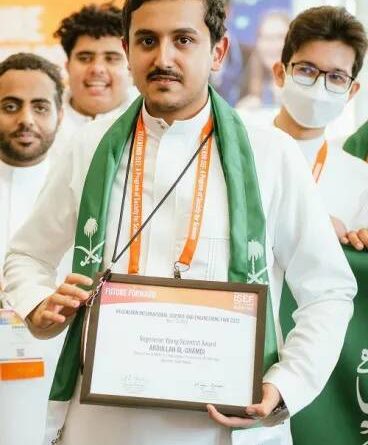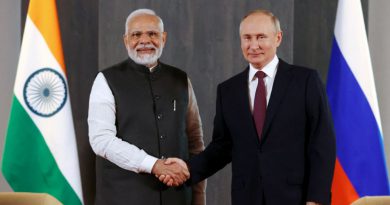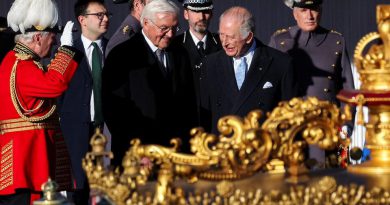Saudi ISEF Champion Abdullah Al-Ghamdi Joins Nobel Laureate’s Research Team at University of California, Berkeley
Riyadh – Saudi scholarship student Abdullah Al-Ghamdi is making waves in the global scientific community by joining the research team of Professor Omar Yaghi, the 2025 Nobel Prize winner in Chemistry, at the University of California, Berkeley.
Al-Ghamdi’s inclusion in this high-profile research initiative highlights both his extraordinary talent and Saudi Arabia’s growing role in advancing scientific innovation worldwide.
Al-Ghamdi continues to pursue his university studies while actively participating in cutting-edge research in chemistry, artificial intelligence, and quantum computing. His academic journey exemplifies the Kingdom’s commitment to nurturing young scientific talent and creating opportunities for students to engage in globally impactful research.
By combining his strong foundation in science with advanced computational and experimental techniques, Al-Ghamdi is poised to contribute significantly to breakthroughs in materials science.
Al-Ghamdi first gained national recognition by winning the Best Researcher Award at the 2019 Regeneron International Science and Engineering Fair (ISEF), marking the highest individual achievement by a Saudi student in the competition’s history.
This achievement not only highlighted his individual brilliance but also demonstrated the effectiveness of Saudi Arabia’s programs for talent discovery and innovation.
Since then, he has continued to advance his research career at Berkeley, one of the world’s most prominent scientific institutions, demonstrating consistent excellence in every aspect of his work.
At UC Berkeley, Al-Ghamdi is involved in a wide range of advanced scientific projects. These include high-throughput synthesis using robotic platforms, precise crystal characterization through X-ray diffraction and advanced microscopy techniques, as well as molecular simulation and computational data analysis.
These methods accelerate the discovery of new materials, particularly those with potential applications in sustainability, energy storage, and water purification. Al-Ghamdi’s involvement in such pioneering work underscores his role as a young scientist driving meaningful innovation on a global scale.
One of Al-Ghamdi’s notable contributions is his leadership of a project developing a new gallium-based zeolitic framework.
This innovative work has led to the creation of novel structures that can be applied to energy-efficient technologies and sustainable materials, aligning with worldwide priorities in clean energy and environmental stewardship. His findings have been published in prestigious international journals, including Nature Synthesis and the Molecular Frontiers Journal, positioning him among the most promising young researchers in his field.
Professor Omar Yaghi, who leads the research group, praised Al-Ghamdi for his outstanding dedication, collaborative approach, and sophisticated research skills.
He described the student as the most distinguished undergraduate he has mentored, noting that Al-Ghamdi’s contributions have already made a meaningful impact on the team’s work.
Such recognition from a Nobel laureate emphasizes the exceptional quality of Saudi talent and its potential to contribute at the forefront of scientific discovery.
The significance of Al-Ghamdi’s achievements extends beyond individual recognition. Tahani Al-Baiz, the Saudi cultural attaché to the U.S. and Canada, highlighted his accomplishments as a testament to the Kingdom’s Human Capacity Development Program.
This initiative aims to empower Saudi citizens to move from student innovation platforms to the global research stage. Al-Ghamdi’s success embodies the program’s strategic objectives, demonstrating how nurturing young talent can yield substantial contributions to science and technology internationally.
By excelling in advanced research and engaging with global scientific leaders, Abdullah Al-Ghamdi serves as an inspiring role model for young Saudis and students worldwide.
His journey reflects the Kingdom’s forward-thinking approach to education, research, and innovation, promoting a culture of curiosity, excellence, and global collaboration.
As Al-Ghamdi continues to expand his contributions to chemistry, AI, and quantum computing, his work promises to accelerate discoveries that address global challenges in energy, sustainability, and beyond.
Saudi Arabia’s investment in talent development and scientific excellence, exemplified by Al-Ghamdi’s achievements, reinforces the Kingdom’s vision of becoming a hub for global research and innovation.
With promising researchers like him at the helm, the future of Saudi science looks brighter than ever.



